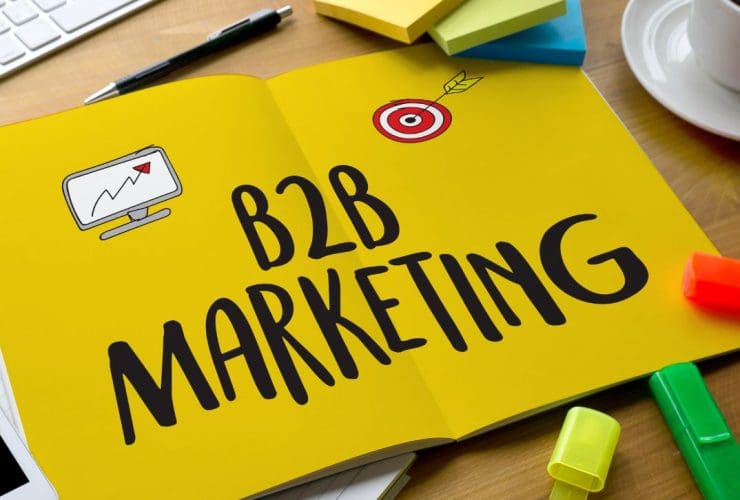The digital marketing landscape has undergone a dramatic transformation. What once relied on intuition and broad demographic targeting has evolved into a sophisticated, data-driven ecosystem that delivers measurable results. As we navigate 2025, understanding this evolution isn’t just beneficial for marketing professionals, it’s essential for business survival and growth.
The Foundation of Modern Digital Marketing
Digital marketing today is fundamentally different from its traditional predecessors. The shift from one-way communication to interactive, personalised experiences has created new opportunities and challenges. Modern digital marketing is characterised by its ability to track, measure, and optimise every interaction, creating a feedback loop that continuously improves performance.
The numbers tell a compelling story of this transformation. Digital advertising spending has grown exponentially, with businesses recognising the superior ROI and targeting capabilities of digital channels. This growth reflects not just technological advancement but a fundamental shift in how consumers discover, research, and purchase products and services.
AI-Powered Personalisation: The New Standard
Artificial intelligence has moved from experimental technology to essential infrastructure in modern marketing. The AI market is projected to be worth $47.32 billion in 2025, a significant jump from $12.05 billion in 2020, showcasing its rapid integration and businesses’ confidence in its capabilities. The adoption rate among marketing professionals reflects this confidence. Reports indicate that 92% of businesses already leverage AI-driven personalisation to fuel growth. This isn’t about early adopters anymore; AI has become a standard expectation in modern marketing operations.
The effectiveness of AI-powered personalisation is evident in both consumer expectations and business results. 71% of consumers expect companies to deliver personalised interactions, and 76% get frustrated when it doesn’t happen. This consumer demand translates directly into business performance, with companies using advanced personalisation techniques seeing measurable improvements in engagement and conversion rates. Content creation has also been revolutionised by AI tools. 43% of marketers now use AI to generate content, blogs, images, emails, and social posts; while 35% rely on it for data analysis and workflow automation. This represents a fundamental shift in how marketing content is created and optimised.
The Short-Form Video Revolution
Video content has become the dominant format in digital marketing, with short-form video leading the charge. The statistics are compelling: 81% of marketers say that short-form videos directly influence sales, demonstrating the format’s effectiveness beyond just engagement metrics. The adoption curve among marketers reflects this impact. 44% of marketers are expected to use short-form videos in 2025, compared to just 26% in 2022. This increase in adoption over three years indicates the format’s proven effectiveness and the rapid shift in marketing strategies.
The power of short-form video lies in its ability to capture attention in an environment where the average human attention span is about 8.25 seconds. This format forces marketers to distil their messages to the most essential elements while still delivering value and driving action.
Social Commerce: The Convergence of Discovery and Purchase
The lines between social media and e-commerce have blurred significantly, creating new opportunities for brands to connect with consumers. Social commerce represents one of the most significant shifts in how consumers discover and purchase products.
The numbers reveal a market in explosive growth. Globally, the social commerce market size was valued at $1,260.15 billion in 2024 and is projected to reach $14,918.51 billion by 2033, growing at a CAGR of 31.60%. This growth trajectory represents more than incremental increases—it’s a fundamental change in shopping behaviour. These numbers indicate that social commerce isn’t just an add-on to traditional e-commerce—it’s becoming a primary shopping channel.
Interactive and shoppable videos are driving much of this growth. Industry data suggests that shoppable videos can increase conversion rates by up to 30%, demonstrating the power of combining entertainment with commerce.
The Evolution of Influencer Marketing
Influencer marketing has matured significantly, with data supporting a shift toward authenticity over reach. The influencer marketing industry continues its upward trajectory, projected to reach $32.55 billion by the end of 2025, up from $21.1 billion in 2023, demonstrating continued confidence and investment in this strategy.
The focus has shifted toward micro and nano-influencers. Report says that 53% of Gen Z trust micro-influencers, finding them more genuine than macro influencers. This shift reflects a broader movement toward trust-based marketing and authentic connections.
Privacy-First Marketing: The New Reality
Consumer privacy has become a central consideration in digital marketing strategy. The decline of third-party cookies and increasing privacy regulations have forced marketers to rethink their approach to data collection and customer targeting.
Transparency and consent have become critical factors in building consumer trust. Modern consumers are more aware of how their data is used and increasingly demand control over their information. This shift requires marketers to build first-party data strategies and focus on direct customer relationships.
Consumer Behaviour in the Digital Age
Understanding modern consumer behaviour is crucial for effective digital marketing. Today’s consumers don’t follow a linear path from awareness to purchase. Instead, they move fluidly between online and offline channels, research extensively, and often engage with brands multiple times before making decisions.
The data shows that consumers are willing partners in personalised experiences when they see clear value. 80% of people are more likely to buy from brands that offer personalised experiences, and up to 90% are okay with sharing their data if they see tangible benefits.
The Mobile-First Imperative
Mobile devices have become the primary way consumers access digital content and make purchases. This shift requires marketers to think mobile-first, designing experiences specifically for mobile users rather than adapting desktop experiences for smaller screens.
Mobile-first marketing considers factors like page load speed, touch-friendly interfaces, location-based services, and the unique ways people consume content on mobile devices. The success of short-form video platforms demonstrates the importance of mobile-optimised content.
Data-Driven Decision Making
Perhaps the most significant advantage of modern digital marketing is its measurability. Every click, view, and interaction generates data that can inform strategy and optimise performance. This data-driven approach allows marketers to understand what works, what doesn’t, and why.
The ability to track and measure campaign performance in real-time has fundamentally changed how marketing strategies are developed and executed. Marketers can now test hypotheses, measure results, and optimise campaigns continuously rather than relying on post-campaign analysis.
Integration and Automation
Modern marketing success requires integrating multiple channels and touchpoints into cohesive customer experiences. Marketing automation tools have become essential for managing this complexity while maintaining personalisation at scale.
The integration of AI, automation, and data analytics enables marketers to create sophisticated campaigns that adapt to individual customer behaviours and preferences. This level of sophistication was impossible with traditional marketing methods.
Challenges in the Modern Marketing Landscape
The rapid pace of change in digital marketing creates ongoing challenges. Keeping up with new platforms, technologies, and consumer behaviours requires continuous learning and adaptation. The proliferation of marketing channels makes it challenging to maintain consistent messaging and experiences across all touchpoints.
Privacy concerns and regulatory changes add another layer of complexity, requiring marketers to balance personalisation with privacy protection. The key is building trust through transparency and providing clear value in exchange for consumer data.
Building a Modern Marketing Strategy
Success in modern digital marketing requires a strategic approach that combines technological capabilities with human insights. This means starting with clear objectives, understanding audiences deeply, embracing experimentation, and focusing on value creation.
The most successful modern marketing strategies integrate AI-powered personalisation, engaging content formats like short-form video, social commerce capabilities, and authentic influencer partnerships into unified customer experiences.
The Future of Digital Marketing
As we look ahead, several trends will continue shaping the digital marketing landscape. AI will become even more sophisticated, enabling predictive personalisation and automated optimisation. New platforms and technologies will create fresh opportunities for brand interaction.
The fundamental principles of modern marketing, customer-centricity, data-driven decision making, continuous optimisation, and value creation, will remain constant even as specific tools and tactics evolve.
Conclusion
The evolution of digital marketing represents both tremendous opportunity and significant complexity. The tools and technologies available today allow for unprecedented precision, personalisation, and measurement. However, success requires more than just adopting new technologies, it demands a fundamental shift in thinking about how brands connect with customers.
From the rise of AI and short-form video to the shift toward micro-influencers, social commerce, and data-conscious strategies, today’s marketing is as much about connection as it is about conversion. It’s no longer just about having a presence online. It’s about being purposeful, personal, and present in the right spaces.
That’s where Accret Experience comes in.
At Accret, we don’t just follow trends, we help brands lead with strategy, creativity, and the right influential voices. Whether you’re looking to:
- Launch a data-driven influencer campaign,
- Amplify your story through engaging short-form video,
- Connect with niche audiences via macro, micro and nano-influencers,
- Activate meaningful engagement in the ever-growing world of social commerce
We help you do it all with measurable impact.
Our strength lies in blending influencer marketing, media production, content creation, and performance-driven digital strategies with a deep understanding of the cultural, technological, and consumer shifts shaping 2025.
Let us help you show up in the moments that matter, tell your brand story in a voice that resonates, and turn attention into loyalty.
Ready to grow with intention? Let’s create marketing that moves your audience and your business together.






